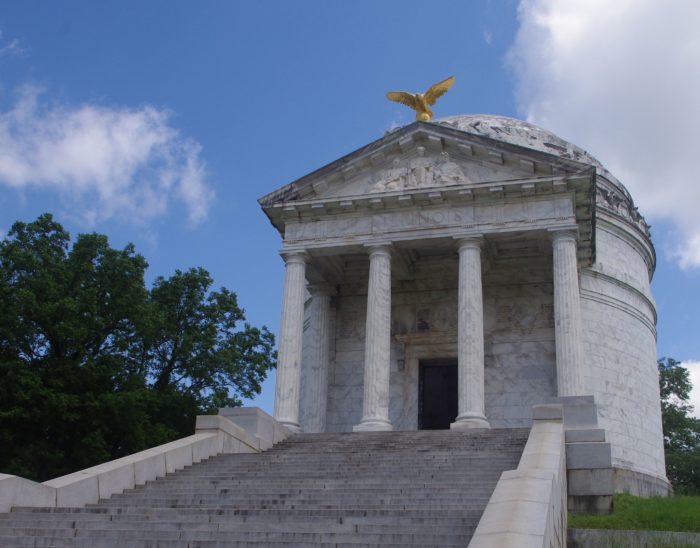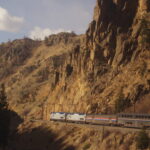The Siege of Vicksburg Revisited.
We woke up this morning still in Mississippi with the American Queen docked at Vicksburg, site of one of the two pivotal battles of the Civil War, the other being Gettysburg. Today was our two-plus-hour tour of the Vicksburg National Military Park and I probably learned as much about the Cvil War as I had managed to accumulate in all the decades that came before.

Visitors proceed through the park by car along a meandering road passing dozens of monuments erected by individual states and cities to honor their native sons who died in the assault on this city. Some are modest, others very large; two or three are spectacular and beautifully executed. Every one, large or small, is sobering.
We had arranged for our own guide whom we met at the Visitor Center–a woman I judge to be in her 70s. For most of those years, she’s been a resident of this area. A retired school teacher, she was articulate, thoroughly knowledgable, even-handed and historically accurate in the way she described the Siege of Vicksburg, notwithstanding occasional references to “us” and “them”.
That said, after two hours touring the park, it’s simply not possible to imagine the hardships … the privation … the suffering endured by the rank and file soldiers on both sides. And I’m not just talking about suffering as a result of actual battles. Union or confederate, there wasn’t enough to eat and what there was would be inedible by today’s standards. Union soldiers were unprepared for the hot humid climate without the added discomfort of uniforms made of wool. The terrain was hilly and, as our guide repeatedly pointed out, the confederates always managed to occupy the high ground. The carnage was awful, of course, more so on the Union side since they were always forced to attack up hill.
The Confederate dead were all buried in the local cemetery, while the Union soldiers were interred in another area that is now within park boundaries. There are several thousand soldiers there, more than half of whom were never identified.
For instance, in the Union cemetery within the park itself, three Confederate soldiers are buried. Our guide noted–with obvious disapproval–that the flag placed over one of those graves is the only Confederate flag permitted in the Park.
Saying good-by in the parking lot she said, “They say that the cause of the war was slavery. It was not. It was economics and politics.”
“But wasn’t the southern economy dependent on slavery?” I asked.
After a two beat pause: “Yes, it was,” she said.



Two other things to notice at Vicksburg.
First, some states (Missouri and Kentucky come to mind, but I think Tennessee also) have monuments for Federal and Rebel units.
Second, there wasn’t as much attacking of the Rebel high ground; rather Team Grant made a number of attempts to dig under the fortifications, and the most effective strategy turned out to be starving the defenders and the civilians out. As far as I know, no decaying corpses of horses catapulted over the walls, which was a siege tactic before artillery replaced catapults.